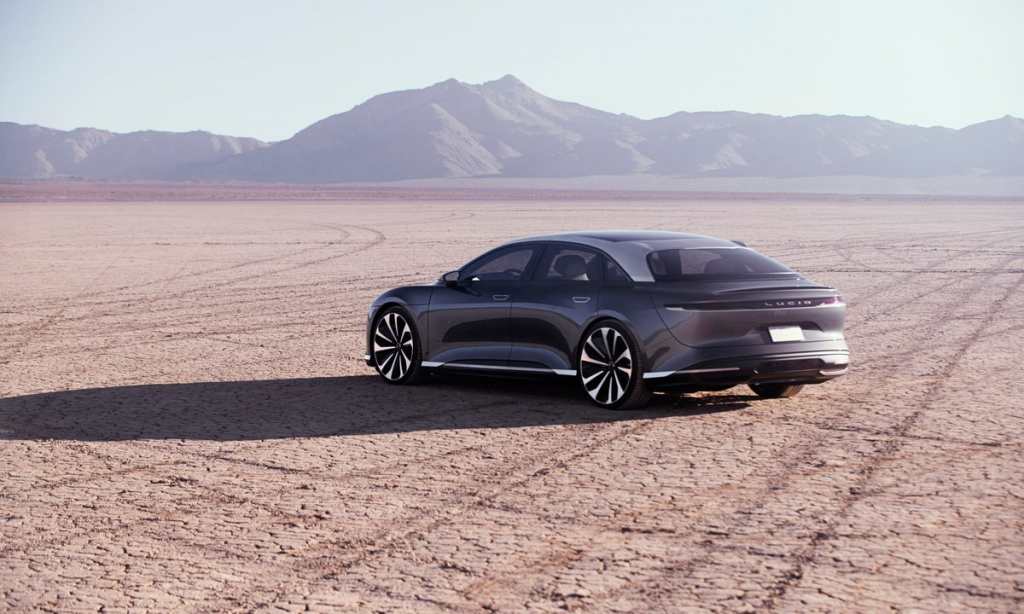Read The Full Article On: Finance
The “Electric Vehicle – Global Market Outlook (2019-2027)” report has been added to ResearchAndMarkets.com’s offering.
The Global Electric Vehicle market accounted for $162.34 billion in 2019 and is expected to reach $716.87 billion by 2027, growing at a CAGR of 20.4% during the forecast period.
Some of the key factors propelling market growth include favourable government policies and subsidies, growing concerns over environmental pollution, demand for increased vehicle range per charge, rapidly increasing sales of electric vehicles, and rising fuel prices will boost the demand for electric vehicles. However, lack of standardization of charging infrastructure is likely to hamper the market.
By propulsion type, plug-in hybrid electric vehicle segment is projected to witness the lucrative growth during the forecast period, due to the growing infrastructure of electric vehicle charging stations globally. This upsurge is due to the initiatives taken by the government of developing countries such as India and China to promote the usage of electric vehicles. Furthermore, companies such as Volkswagen Group are focusing on increasing its plug-in electric car sales.
On the basis of geography, The Asia Pacific market is expected to witness the significant growth, during the forecast period, due to increasing demand for reducing carbon emission and developing. The automotive industry in countries such as China, Japan and South Korea is inclined toward innovation, technology, and development of advanced electric vehicle. More advanced and fast charging stations are expected to propel the growth of electric vehicle. BYD, BAIC, Chery and SAIC among others are some of the key players in the Asia Pacific electric vehicle market.
Some of the key players in electric vehicle market include Energica Motor Company S.P.A, Ford Motors, General Motors Company, Volvo, Honda Motor Company Ltd, Nissan Motors Co. Ltd., Tesla, Inc., Toyota Motor Corporation, Hyundai, Bayerische Motoren Werke AG (BMW), BYD Company Limited, Daimler AG, Continental, Volkswagen AG, Geely Automobile Holding Limited, Groupe Renault, Mitsubishi Motors Corporation, Jiangling Motors Corporation Limited, Lucid Motors, Inc., and Zotye International Automobile Trading Co. Ltd.
What the report offers:
- Market share assessments for the regional and country-level segments
- Strategic recommendations for the new entrants
- Covers Market data for the years 2018, 2019, 2020, 2024 and 2027
- Market Trends (Drivers, Constraints, Opportunities, Threats, Challenges, Investment Opportunities, and recommendations)
- Strategic analysis: Drivers and Constraints, Product/Technology Analysis, Porter’s five forces analysis, SWOT analysis, etc.
- Strategic recommendations in key business segments based on the market estimations
- Competitive landscaping mapping the key common trends
- Company Profiling with detailed strategies, financials, and recent developments
- Supply chain trends mapping the latest technological advancements
Key Topics Covered
1 Executive Summary
2 Preface
3 Market Trend Analysis
3.1 Introduction
3.2 Drivers
3.3 Restraints
3.4 Opportunities
3.5 Threats
3.6 Technology Analysis
3.7 Application Analysis
3.8 Emerging Markets
3.9 Impact of COVID-19
4 Porters Five Force Analysis
5 Global Electric Vehicle Market, By Propulsion Type
5.1 Introduction
5.2 Plug-in hybrid electric vehicle (PHEV)
5.3 Hybrid electric vehicle (HEV)
5.4 Battery electric vehicle (BEV)
5.5 Fuel cell electric vehicle (FCEV)
6 Global Electric Vehicle Market, By Battery Technology
6.1 Introduction
6.2 Lithium-Ion
6.3 Lead-Acid
6.4 Nickel Metal Hydride
6.5 Solid State
6.6 Metal-Air
6.7 Lithium-Sulfur
6.8 Flash Cell
6.9 Sodium Nickel Chloride
7 Global Electric Vehicle Market, By Vehicle Type
7.1 Introduction
7.2 Commercial Vehicles
7.2.1 Trucks
7.2.2 Buses
7.3 Two wheelers
7.4 Passenger Cars
7.4.1 Mid-range Car
7.4.2 Small Car
7.4.3 Sport Utility Vehicle (SUV)
7.4.4 Crossover Utility Vehicle (CUV)
8 Global Electric Vehicle Market, By Plug-in EVSE
8.1 Introduction
8.2 Power Supply Range
8.2.1 Level 1
8.2.2 Level 2
8.2.3 Level 3
8.3 Deployment
8.3.1 Commercial
8.3.2 Residential
9 Global Electric Vehicle Market, By Charging Station Type
9.1 Introduction
9.2 Super Charging
9.3 Normal Charging
10 Global Electric Vehicle Market, By Material
10.1 Introduction
10.2 Conductive
10.3 Semiconductor
10.4 Substrate
10.5 Dielectric
11 Global Electric Vehicle Market, By Light Weighting Material
11.1 Introduction
11.2 Aluminum
11.3 Steel
11.4 High Strength Steel
11.5 Carbon Fiber Reinforced Polymer (CFRP)
12 Global Electric Vehicle Market, By High Power Electronics
12.1 Introduction
12.2 Insulated-gate Bipolar Transistor (IGBT)
12.3 Silicon Carbide (SiC)
12.4 Gallium Nitride (GaN)
13 Global Electric Vehicle Market, By Component
13.1 Introduction
13.2 Infotainment System
13.2.1 Head Up Display System
13.2.2 Navigation, Information and Communication
13.2.3 Rear Seat Entertainment
13.2.4 Multimedia System
13.3 Electric Motor
13.4 Battery Cells & Packs
13.5 On-Board Charger
13.6 Electric Engine

